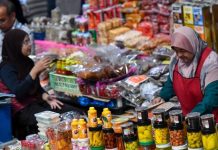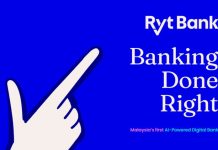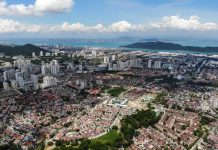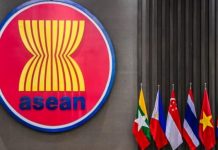Hundreds of people have joined a mass sit-in at Hong Kong International Airport Friday evening in a fresh round of anti-government protests designed to secure international backing for the movement. Organisers were expecting thousands to show up, and hoped police would respect what they said would be a peaceful protest that was initially billed to last until Sunday. Ahead of the demonstration, the airport had increased security that led to passengers experiencing delays in reaching departure gates, as airlines warned travellers to arrive early for their flights. Since the protest started at 1pm in the airport’s arrival hall, protesters have been distributing leaflets to travellers explaining the main demands of the movement, which erupted from opposition to the now-abandoned extradition bill. The five demands include a full withdrawal of the draft legislation, implementation of universal suffrage and a retraction of the riot label attached to recent anti-bill protests.
Meanwhile more Hong Kong companies say business impacted by mass protests. Conglomerate Swire Pacific became the latest major Hong Kong company to voice concern about the impact of protests in the city on business activity, saying they are having direct and indirect impact on demand on a number of its businesses. The comments by Swire, whose business spans retail to property to airlines, come after similar concerns raised by Cathay Pacific Airways Ltd and Hongkong and Shanghai Hotels’s on Wednesday. Swire owns 45 per cent of Cathay Pacific, Refinitiv data shows. “The protests in Hong Kong have had some effect on retail sales at our malls, particularly at Pacific Place. If the protests continue, sales are likely to continue to be affected,” Michelle Low, Swire Pacific finance director said in the interim results statement on Thursday (Aug 8), referring to its high-end shopping mall in Admiralty, a financial district where many of the mass protests took place. “Trading conditions for our hotels are expected to be stable in the second half of 2019, except that occupancy in Hong Kong has been affected somewhat by the protests and this is likely to continue if the situation persists.”
Millions have taken to Hong Kong streets in anti-government protests that have intensified since mid-June, at times forcing banks, stores, shopping malls, restaurants and even government buildings to close as the demonstrations degenerated into violent clashes between police and activists. Hong Kong’s Secretary for Commerce and Economic Development Edward Yau said on Thursday the drop in inbound tourists accelerated in the past few weeks, with the first week of August declining 31 per cent from a year ago, compared to just single digit percentage drop in mid-July. He said the logistics and retail sectors together employ over one million people in Hong Kong, and it could hurt the city’s employment if the sectors continue to be under pressure.
Travel Industry Council chairman Jason Wong told Reuters the number of tours from mainland China has fallen 40 per cent to about 140 tours per day in the first week of August, from about 230 tours a day in the same period last year. Wong also expressed concern that the number of business visitors would reduce as some business meetings and conferences were seen scaling back the size or being cancelled. “Many related workers may need to take no pay leave and their income will be affected,” Wong said.
Also on Thursday, MTR Corp Ltd and Giordano International Ltd said in their interim results statement that the current social unrest could weigh on their business. “This time, it is like a perfect storm,” Wharf Real Estate Investment chairman Stephen Ng said on Tuesday, as Hong Kong faces both internal and external pressure, including a weakening global economy and US-China trade tensions, at the same time. He is not optimistic about the retail and hotel industry in the second half, he added.
























